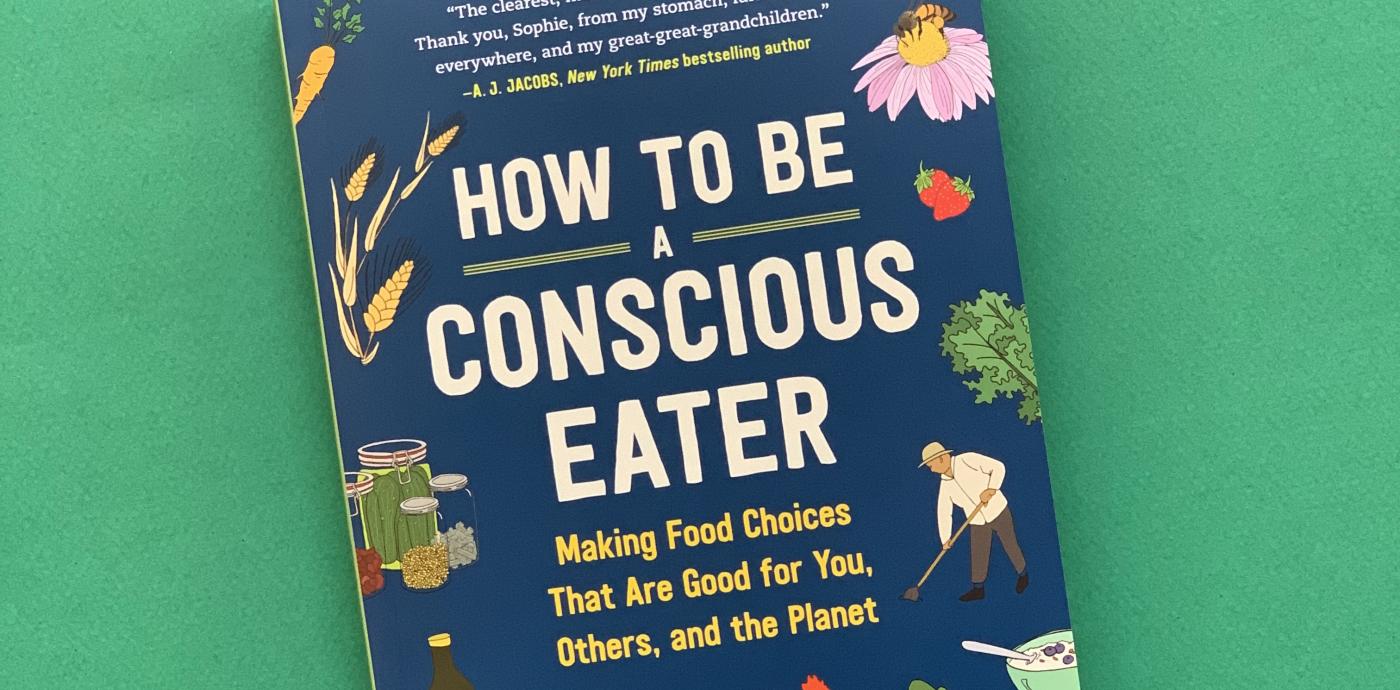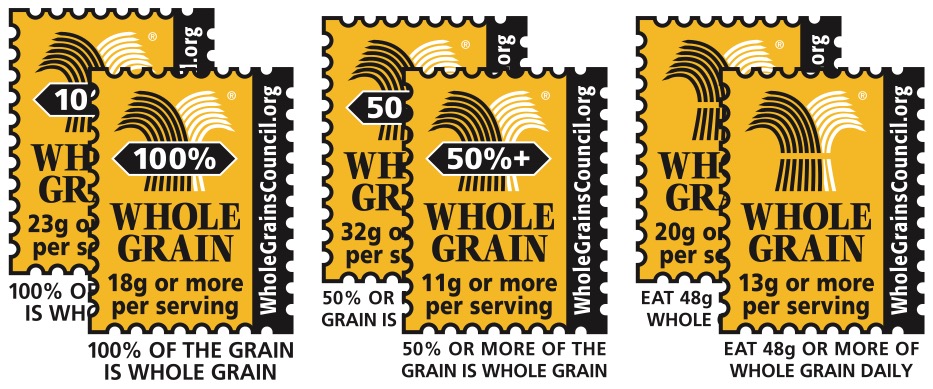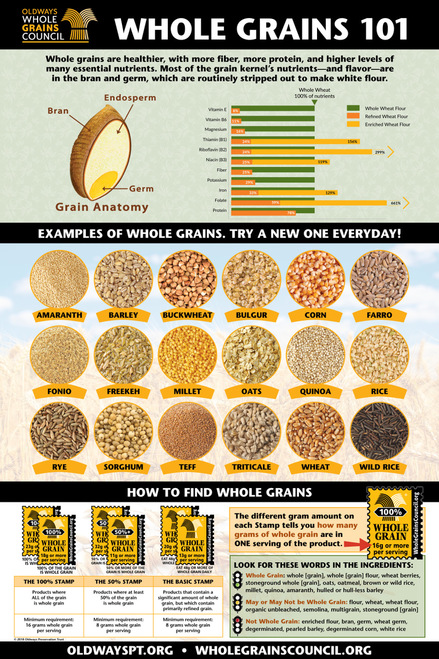Share This
Sometimes, it feels like there are more questions than answers about healthy eating. But in her new book, How to Be a Conscious Eater, Sophie Egan narrows it down to just three:
Is it good for you?
Is it good for others?
Is it good for the planet?
If you can answer yes to these questions, you’re on the right path to becoming a conscious eater. Egan’s book provides the information you need to make sure you can answer “yes.” The book includes guidelines for what we should eat more of and eat less of, and importantly, what to pay attention to when choosing food in the grocery store. Important indicators include the Nutrition Facts Panel and labels like USDA Organic, Fair Trade Certified, and the Whole Grain Stamp.
Whole Grains: Our Unsung Health Heroes
Egan says whole grains are our Unsung Health Heroes. “As part of a healthy diet, eating whole grains has been tied to a lower risk of heart disease, type 2 diabetes, obesity, and oh, overall chance of death,” she writes.
The Dietary Guidelines for Americans recommends that at least half the grains we eat are whole. Aim for three servings of whole grains per day. A serving is 16 grams—but no need to measure it out in grams! Common examples of a serving of whole grains include one piece of 100% whole wheat bread, a half-cup of oatmeal, or a half-cup of cooked brown rice.
And how can you be sure that the grains you’re buying are whole? ”To check the whole-grain content of packaged foods, I recommend looking for one of the stamps from the Whole Grains Council,” Egan writes.
Here’s the run-down on the different Whole Grain Stamps you’ll see on products in the store:
|
THE 100% STAMP
|
THE 50%+ STAMP
|
THE BASIC STAMP
|
|---|---|---|
| For products where ALL of the grain is whole grain. |
For products where at least 50% of the grain is whole grain. |
For products that contain a significant amount of whole grain, but which contain primarily refined grain.* |
| Minimum requirement: 16 grams of whole grain per serving. One full serving of whole grains. | Minimum requirement: 8 grams of whole grain per serving. One half-serving of whole grains. | Minimum requirement: 8 grams of whole grain per serving. One half-serving of whole grains. |
In addition to the health benefits (and they are numerous!) there are so many reasons to enjoy whole grains as a staple part of your diet. Egan’s “Tips for Enjoying Grains” include:
- Buy Local. Help support farmers, your community, and your local economy by buying grains from local sources. Find grains near you with our Local Grains Map.
- Buy from Manufacturers Whose Growing and Milling Processes are Aligned with Your Values. Egan points out that many whole grain manufacturers commit to environmental health, fair labor practices, and more practices that align with your values. Find and search through a comprehensive list of Whole Grain Stamped products and their manufacturers using this database of Stamped products.
- Taste the Rainbow. Egan says it’s time to venture outside of whole wheat, oats, and brown rice! There is a wide selection of whole grains and whole grain products, many of which you may not have tried or even heard of before. ”You’ll be floored by the variety available to you,” writes Egan. Get familiar with more than 20 different whole grains with our A-Z list.
- Mill it Yourself. Yep, you can mill (grind) your own flour from whole grains! Why do so? You’ll be amazed at the difference in taste compared with prepackaged flours. Learn more about at-home flour milling in this Q+A with Maria Speck.
Win a Copy of How to Be a Conscious Eater
If you’re eager to learn more, you can win your own copy of How to Be a Conscious Eater! Follow Oldways on Facebook and Instagram and stay tuned for giveaway posts throughout the month of April. We will select winners on April 29, 2020. Read the full entry and contest rules.
Good luck! In the meantime, check out all the great resources and recipes we have posted on our website — our site is among Egan’s ”10 Sources I Trust” list in the book.




Add a Comment